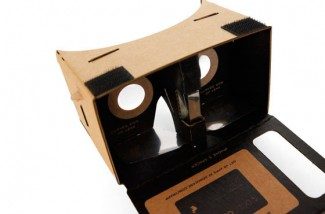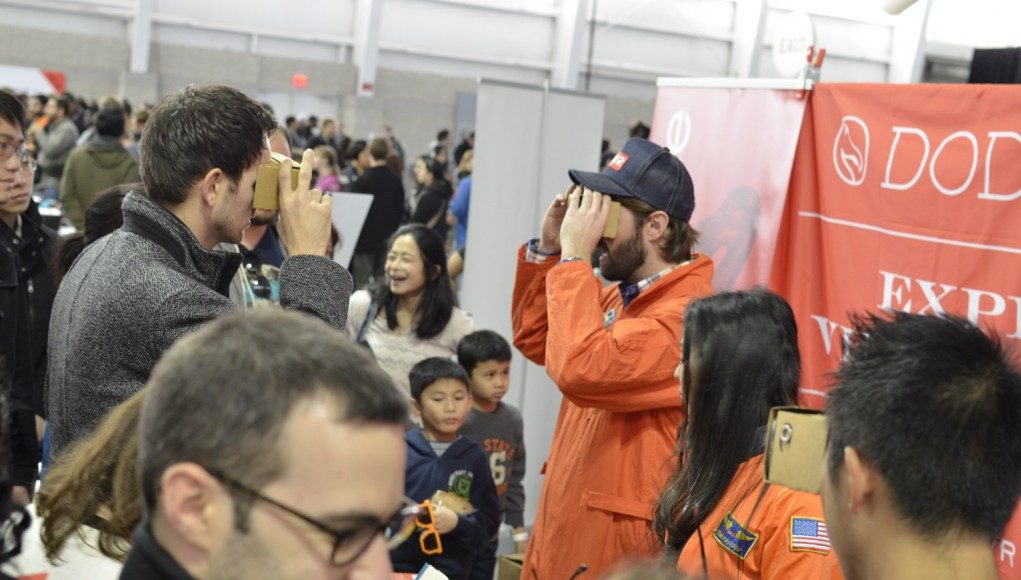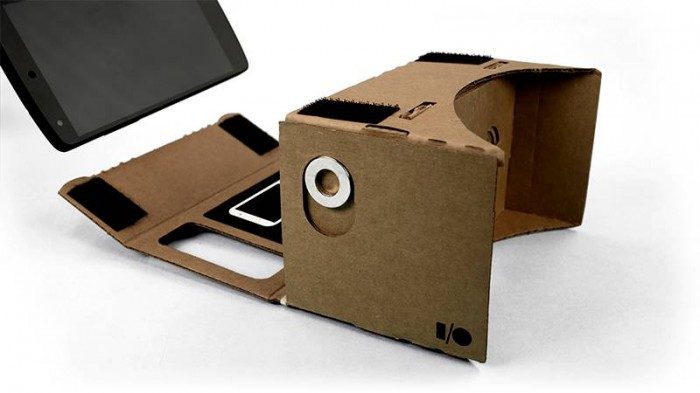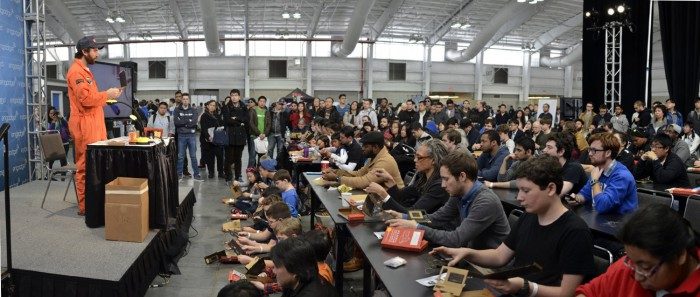DODOcase is probably known by most for their phone and tablet cases, but the San Francisco-based company jumped on an opportunity to get Google Cardboard VR kits into the hands of a VR-hungry public. To date, the company has sold more than 65,000 of the kits and has now launched a Kickstarter campaign to spur what they’re calling a “DIY Virtual Reality Open Source Future,” which includes open software components for VR web development and a newly designed version of Cardboard that has a Leap Motion mount and greater smartphone compatibility.
DODOcase quickly jumped on an interesting opportunity that presented itself when Google revealed Cardboard. The unit is an incredibly simple VR smartphone adapter (literally made out of cardboard) that the company unleashed as an open-source project at Google I/O 2014 to spur developers’ interest in VR on Android.
See Also: Way More Than You Wanted to Know About Google Cardboard

But there was a quirk to this plan; while Google handed out some 10,000 Cardboard kits at I/O, they never intended to sell it as a consumer product. Google just wanted to lower the barrier to entry for devs interested in VR on Android. So instead of selling Cardboard, Google published open-source DIY plans for anyone who wanted to build their own. DIY can be fun, but there wasn’t an option for those who didn’t have the time or energy to order disparate pieces and chop up some cardboard in accordance with the DIY plans.
That’s where DODOcase saw an opportunity and stepped in. Not more than a day after Cardboard was revealed, DODOcase offered essentially the exact same kit for $20—in some cases, this was cheaper than buying all the parts for the DIY version, and almost certainly a faster way to get your hands on one. The company even launched their own meta app store to collect VR-enabled Android apps.
At Engadget Expand 2014 earlier this month, the DODOcase stand was swamped throughout the event. People were practically throwing cash and cards at the staff manning the booth to get their hands on the kit. The promise of a taste of VR for $20 is apparently an easy sell. And before anyone accuses DODOcase of conflating Cardboard with much more performant VR hardware, they had plenty of units on display for people to test before they bought.
To date, the company tells Road to VR that they’ve sold more than 65,000 units, to the tune of some $1.3 million (assuming $20/piece). They’ll probably fall short of their rather audacious goal of moving 1 million units by the end of 2014, but they’ve demonstrated a healthy appetite for low-cost VR. If people are impressed by Cardboard, they’ll be blown away by serious VR headsets like the Oculus Rift and Gear VR. Rather than poison in the well, as feared by some, Cardboard may be an apt gateway drug to serious VR.
At Expand, DODOcase also hosted a ‘DIY VR’ workshop where they handed out and lead the construction of the newer v1.2 version of Cardboard, an upgraded model of their own design which incorporates a new capacitive input mechanism for compatibility with a greater number of smartphones.
Continue Reading on Page 2…











